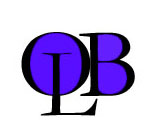What is OpenLogbook all about?
OpenLogbook is a development project aiming at producing software with which a scientist can review an experiment and efficiently search through different types of data that has been recorded. These data might include video and audio streams, written comments and log files of different parameter combinations used - all information needed to reconstruct the experiment afterwards.
When doing science, we are always experimenting with subjects that in some way are new to us. Therefore it is important to remember that things which might not seem to be important at one point might very well later on turn out to be the key to the problem we are investigating. In science you do not always know what you seek until you find it.
 A screenshot of OpenLogbook.
A screenshot of OpenLogbook.
There are also other uses for such software besides reviewing a physics experiment. Imagine a seminar or a course class where a physics experiment is being demonstrated. Instead of having to use slide shows and trying to explain in words what happened in an experiment, a lecturer could simply show the audience the experiment itself, using material such as video clips of a real experiment. OpenLogbook could also be used for learning how to use equipment, for supervisors and collaborators to study an experiment they could not participate in, and for simply documenting an experiment - such a "virtual experiment" could be submitted as "online material" as is now possible with many scientific journals today.
OpenLogbook tries to answer to the question how the data that has been recorded can be reviewed easily and effectively but does not concern how the data is gathered. Using normal DV-cams and microphones is possible, is also easy to obtain and handle them because no special hardware is required.
For more information about the OpenLogbook concept see concept page. There are also some examples of usage of OpenLogbook. For general history of the OpenLogbook as a concept see history page.
